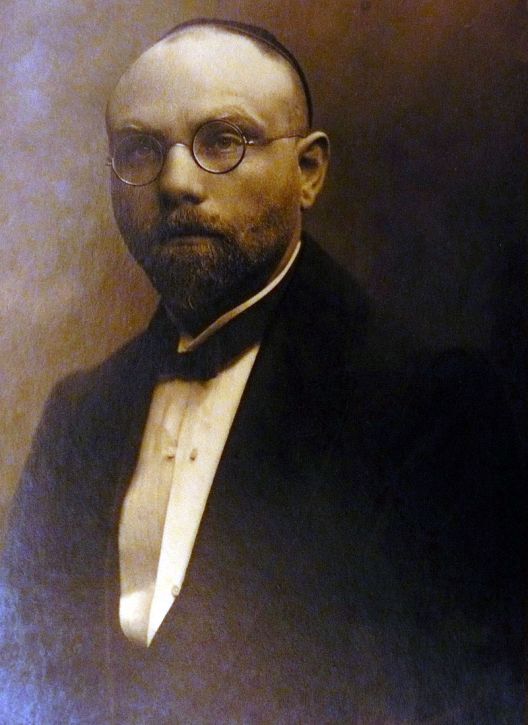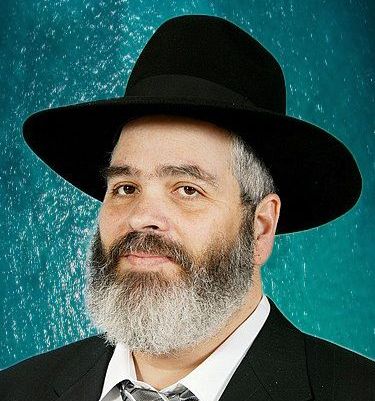  |
|
| ||||||
This Google Custom Search looks only in this website. A New Peanut Can Fight Nut Allergies
A world breakthrough development made by Israeli researchers is big news. A cookie given to children, easily concocted in the home, can decrease the level of allergy to peanuts which can be life-threatening, primarily in children. This cookie, developed by a doctor from Sheba Medical Center and a researcher from the Volcani Institute, consists of a powder ground up from a new species of peanut which has undergone special treatment.
Peanut allergy is one of the most difficult and lethal ones in children, often continuing in adulthood. Up till now, experimental treatment has only brought sufferers to an ability to tolerate exposure to small amounts of the allergen, and even then, only temporarily.
The activities of the Leftists demonstrators began about half a year ago even before the judicial reform was first presented. "The judicial revolution," as they call it, which was intended to reorganize the relations between the local authorities and the government while simultaneously weakening the exaggerated clout of judicial authority which it assumed upon itself over the past thirty years.
But what began at first as organized protests in front of the Knesset, spilled over gradually to blockading central traffic arteries and soon after, to the present state of affairs where concentrations smacking of violence are a common sight.
It all began, according to the amazing testimony of Gilad Sher, "Already on the 14th of December, 2022, when there was no active government yet at the time, and long before Yariv Levine's famous speech....
This article was first published in 1995. Now in 5783 it is 99 years since these events.
Part 1
WSeventy-one years ago, on 29 Sivan, 5784, three pistol shots put an end to intensive efforts which would have nipped the Jewish-Arab conflict in the bud, when Dr. Yisroel Yaakov DeHaan was murdered on his way home from ma'ariv by agents of the Zionist leaders. His death marked the end of the last efforts of the old yishuv to take an active role in the political and diplomatic processes that surrounded Eretz Yisroel. Without DeHaan, the rabbonim of the old yishuv felt they had no way to influence or even participate in international negotiations, and the Zionists were more than happy to assume full responsibility for the future of Eretz Yisroel and even for the Jewish people as a whole, Rachmono litzlan.
The attitude and general policy followed by our rabbonim towards the Arabs — seeking peaceful coexistence, willingness to compromise and high priority for human life — is not something adopted recently, but rather is the same consistent approach that was followed by HaRav Yosef Chaim Zonnenfeld and the other gedolim of the time a century ago. The rabbonim are guided by principles and not political expediency or a desire to favor one or the other political party.
Prior to his murder, Dr. DeHaan had worked for a long time to bring the views and attitudes of the rabbonim of the old yishuv to the attention of the Arab leaders. A long series of meetings and delegations, declarations and written summations took place under the direction and leadership of R' Yosef Chaim Zonnenfeld, zt'l, the rav of Yerushalayim.
Let us go back in time, to this lost opportunity for peace, which was struck down by the fist of evil. A peace which died, and left in its wake wars, terror, and death, and which led to the inescapable conclusion which echoes to this very day: The Zionists in those days did not want peace!
Netanyahu promised this week to return and promote the judicial reform, making the first topic for discussion restraining the argument from reasonableness. The judges in Israel have developed a so-called argument from reasonableness that allows them to reverse any law or any government decision that they find to be unreasonable. This is an approach that is not followed in any other judicial system in the whole world.
And behold: storm and consternation. Lapid and Gantz are up in arms. The media is mobilizing itself to reinstate the Balfour Declaration in the headlines. Threats abound about a crumbling economy, a rise in the dollar, a stock market crash, clashes with the U.S. and a cold shoulder from Biden towards Netanyahu. Chaos and bedlam.
And then we stop and try to make order of the disorder. Netanyahu has no plans to instate the entire judicial reform. The committee for appointing judges will continue as in the past, with a leftist majority, based on the results of the current vote to the Israel Bar Association. Incidentally, there is no other state in which the attorneys participate in choosing judges. This is a clear conflict of interests, making the judges beholden to the attorneys who appear before them.
The only thing on the agenda is the argument from reasonableness which even top jurists, including High Court judges themselves, agree that it is a deviation from any judicial norm.
* * *
Outstanding Articles From Our Archives
IN-DEPTH FEATURES
by Rabbi H. Helman
Rekindling Lives
The Mashgiach's Regret
In a shmuess HaRav Wolbe once gave in the Beis Hamussar on the topic of sharing others' burdens, he mentioned a regret that he still retained from his years in Sweden. It was during the period that he would travel the country between the various institutions in which thousands of Jewish girls were housed.
Those visits were extremely difficult. The girls were physically and emotionally shattered after their bitter ordeals in the camps and even the efficient care and attention of their Swedish hosts were not always enough to restore them to life and health. Sometimes, after visiting an institution for a couple of days, there would be nobody left to come back to for the girls had simply passed away in their grief and anguish. The atmosphere was unbearably grim.
"On leaving the institution and getting into the car that would take me back," recalled the Mashgiach, "I felt relieved. I regret that [feeling], for I hadn't sufficiently implemented the trait of sharing others' burdens . . ."
A Home in Lidinge
One day HaRav Wolbe learned that missionaries had visited one of the institutions and had been preaching their faith to the Jewish girls. He set out for the home, to try to save the girls from trouble. Upon arriving he met the persons in charge, who asked him what his intentions were. He replied that he wanted to speak to the girls and when they saw his determination he was allowed to do so.
When he began speaking, the girls' initial response was to smile. Then, when he started describing how their parents in Heaven were yearning and beseeching that they observe the mitzvos and strengthen their Yiddishkeit, all the girls arose and started singing Hatikvah. That was the only symbol of Judaism that they knew.
Opinion & Comment
by HaRav Aharon Yeshaya Roter
We have been fortunate that in the sea of licentiousness that surrounds us there are still valorous Jewish women who carry on the tradition established at the time of the Golden Calf of not worshiping idolatry. They were privileged to sanctify Hashem's name in public when they cast their `ornaments' behind their backs and donned the true Jewish ornaments upon their head. Even though garments are designed to distinguish their wearers, they gave up their pride for the sake of the honor of their Creator.
Thus does it say in Yirmiyohu, "Give unto Hashem your G- d honor before it grows dark." I have no doubt that the gates of heavenly mercy were opened, from which descended two angels bearing two crowns, one corresponding to the pronouncement of na'aseh, that is, the commandment for a married woman to cover her head, and the other, corresponding to nishma, that is, for obeying the directives of the sages. And these sages are the worthy messengers for a praiseworthy thing; whoever has yiras Shomayim is obeyed.
Opinion & Comment
by Mordecai Plaut
Ahavas Hashem is one of the six constant mitzvos. It is an obligation upon every Jew, all the time. In addition we have the additional mitzvah of Krias Shema which includes as a prominent feature, in its third verse, the mention of this obligation twice a day: in the morning and in the evening. We begin and end each day with a recitation of the mitzvah that we have to love Hashem.
The Rambam gives explicit directions for fulfilling this important mitzvah.
Hilchos Yesodei Hatorah (II:2): "And how is the way to love of Him? When one contemplates His deeds and His great and wondrous creatures, and one sees from these the wisdom of G-d - that it is immeasurable and unbounded - immediately (miyad), he loves and praises and glorifies and has a huge desire to know Hashem Hagodol, "the great name."
The Rambam says that right after this one will immediately also shrink backward and fear G-d, after realizing what a small creature he himself is.
The Rambam continues (II:3): "In accordance with all this, I will explain important generalizations [taken] from the deeds of the Master of all Worlds, so that they can serve as an introduction for one who tries to understand to love Hashem."
Following this the Rambam lays out a general classification of the world as a hierarchy composed of 1] forms with matter, 2] forms with a special eternal matter, and 3] forms without matter altogether.
These three classes are then discussed by the Rambam in reverse order: first a discussion of forms without any matter including an introduction to angels and remarks about the way that Hashem knows things, followed by a discussion of the heavenly bodies which are the bodies composed of forms with a special, eternal matter, followed by a discussion of the earthly bodies and some concluding remarks.
The Rambam was one of our greatest Rishonim and he was particularly expert in the relationship that we should have with Hashem. Thus there can be no question that thinking about these things that the Rambam said to think about, actually brought him and those of his generation to ahavas Hashem.
What about ourselves?
|
||||||




.jpg)



